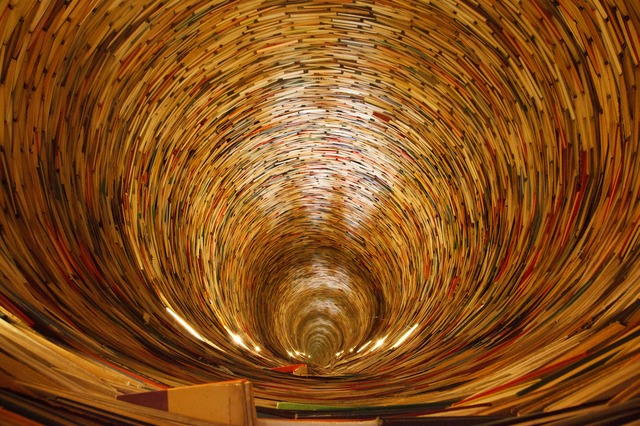What’s my secret tip for understanding the biblical text better?
Read more (and better)!
Most people who have a high regard for the biblical text and the truths it communicates want to better understand what it is actually trying to communicate. A lot of the time, when people ask how they can accomplish that goal, they are told to simply read the bible more.
That’s all well and good! I think everyone would benefit from reading their biblical texts more (especially the texts of the Old Testament) but if you really want to supercharge your understanding of the text you need to get some perspective. You need to get information from outside the text that will allow you to better interpret what is inside the text. For most of us, the best way to get that outside information is through reading!
As for me, I read books about the biblical text and it’s context in order to close the gap between the modern western culture I grew up in and the foreign culture of the bible. Besides actually touching the physical remains of the lands of the bible, reading is the best way to bridge that cultural gap.
Like many of you I set out to read more in 2014. While I didn’t approach this systematically, I did succeed in reading more books than I can remember having done in previous years.
One of those books was Tony Reinke’s Lit! a sustained explication of the theological foundation of reading both biblical and non-biblical texts. In Lit! Reinke rightly points out how daunting the task of reading can become. If we can only read one book a week for the next fifty years then, as Reinke notes,
For every book one that you choose to read, you must ignore ten thousandother books simply because you don’t have the time (or money!).
His solution? Prioritize the books you’re reading based upon your reason for reading them. If the book doesn’t fit in with your priorities pass it by! Ultimately, you can prioritize the books you read in any way you wish. But by creating priorities you give yourself a mechanism by which you can filter out those thousands of books that aren’t worth your time.
When I wrote out my priorities I realized that I read a fairly balanced diet of books in 2014. That wasn’t always the case! By understanding my priorities I hope to be more intentional about my reading in 2015.
My Reading Priorities
Here’s how I will be prioritizing my reading for 2015 (lightly based upon Reinke’s own priorities) and how the books I read in 2014 stacked up against those priorities (with occasional annotations).
1. Reading the biblical text
- I’m not good with “a little bit each day.” I like to read entire books of the bible (or poems) in one sitting to get a better feel for the greater context the story or argument. In 2014 I really focused in on the Pauline epistles.
2. Reading to better understand the movement of God in redemptive history
- Make Your Mark: Getting Right What Samson Got Wrong by Brad Gray. This is the best book I read this year. Gray’s work is a perfect illustration of how knowing more about the cultural backgrounds of the bible not only affect how you read scripture but also how the interplay between the text and context can alter how you should live your life today. It epitomizes Biblical Remains’ mission to encounter the ancient world of the bible that we may live better today! Check out my interview with the author here.
- Walking in the Dust of Rabbi Jesus: How the Jewish Words of Jesus Can Change Your Life by Lois Tverberg.
- Scripture and the Authority of God: How to Read the Bible Today by N.T. Wright.
- 1177 B.C.: The Year Civilization Collapsed by Eric Cline.
- Undeniable: Evolution and the Science of Creation by Bill Nye.
- The Science of Interstellar by Kip Thorne.
I include Nye and Thorne’s work here because I like to read a few books each year which ponder the natural world. If God works through the everyday banal moments of our lives, then he is also working in the the banal everyday motions of the universe, both big and small. Understanding that universe helps us to understand the largest context there is.
3. Reading to better understand the movement of God in our lives today
- The Return of the Prodigal Son: A Story of Homecoming by Henri Nouwen
- A Many Colored Kingdom: Multicultural Dynamics for Spiritual Formation by Elizabeth Conde Frazier, S. Steve Kang, and Gary Parrett
- Becoming Whole and Holy: An Integrative Conversation about Christian Formation by Jeannine Brown, Carla Dahl, and Wyndy Corbin Reuschling
4. Reading for personal development
- Lit!: A Christian Guide to Reading Books by Tony Reinke
- Streams of Living Water by Richard Foster.
- A Million Miles in a Thousand Years: What I Learned While Editing My Life by Donald Miller. The second best book I read all year. I didn’t want to end my runs just so I could listen a bit longer.
- The Peacemaker by Ken Sande.
- The Meaning of Marriage: Facing the Complexities of Commitment with the Wisdom of God by Timothy Keller.
5. Reading for professional development
- Great by Choice by Jim Collins and Morten T. Hansen.
- Good to Great: Why Some Companies Make the Leap…and Others Don’t by Jim Collins.
- Who Runs the Church?: 4 Views on Church Government with individual essays by Peter Toon, Roy Taylor, Paige Patterson, and Samuel Waldron.
- Deep and Wide: Creating Churches Unchurched People Love to Attend by Andy Stanley.
6. Reading for personal enjoyment
- Dreamers and Deceivers: True Stories of the Heroes and Villains Who Made America by Glenn Beck.
- Food: A Love Story by Jim Gaffigan.
- The Lion’s Gate: On the Front Lines of the Six Day War by Steven Pressfield.
- Miracles and Massacres: True and Untold Stories of the Making of America by Glenn Beck.
Join the Conversation below: How do you prioritize your reading schedule? How do you plan to read more in 2015? What one book are you most looking forward to reading this year?


